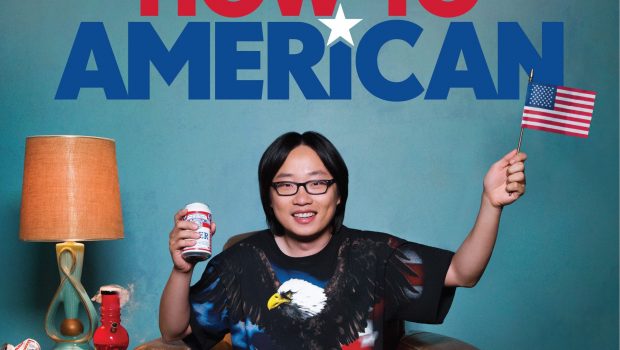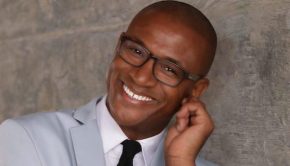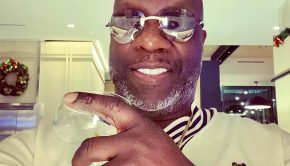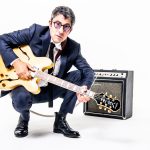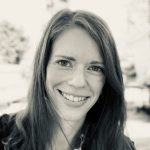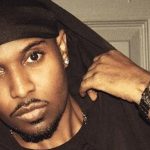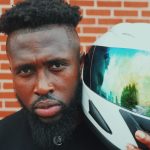“Silicon Valley” Star Jimmy O. Yang On His New Book “How To American” & Plenty More
If you watch the HBO show Silicon Valley, Jimmy O. Yang — who plays the character “Jian-Yang” — has undoubtedly made you laugh hard. But something that many people may not realize about Yang is that he was active within the stand-up comedy world before he landing a role on Silicon Valley. Furthermore, Yang was the last comic to perform on the recent reboot of The Arsenio Hall Show.
Yang wrote about his journey from Hong Kong immigrant — moving to the United States with his family as a teenager — to working actor and comedian in How To American: An Immigrant’s Guide To Disappointing Your Parents. Covering all facets of Yang’s life, How To American covers some of his other roles (e.g. Patriots Day, Crazy Rich Asians, It’s Always Sunny In Philadelphia), but manages to tell his story in a way that is simultaneously educational, inspirational, and funny. Also of note about How To American is that it features a foreword by Silicon Valley (and Beavis & Butthead) creator Mike Judge.
I had the pleasure of speaking of the Los Angeles-based performer by phone, and highlights from that chat are posted below for The Hype. More on Jimmy O. Yang, including upcoming live dates, can be found online at www.jimmycomedy.com.
Your book is part-memoir, part-comedy, part-inspirational tale. Did you have the whole story arc in mind when you started writing it?
Jimmy O. Yang: I kind of had a rough outline when I started writing it. I started in stand-up, I always wanted to tell stories in a more honest way, but stand-up has a format and they expect a laugh every five seconds. When I started writing down these stories, I tried to put them in my stand-up but it wasn’t the right format. I thought a book would be a more honest way to do it, I just did it chapter by chapter. The first chapter I wrote was the strip club chapter, then the chapter where I had just come to America. These are stories I am very familiar with. Just piece by piece I was able to put them together into a cohesive story. It came out naturally. I wasn’t forcing it, trying to be funny, trying to be inspirational, I was just trying to do it honestly in an interesting way.
I remember first hearing about the strip club DJ part of your life when you were on Adam Carolla’s podcast. Was that the first time you had spoken about that openly?
Jimmy O. Yang: Yes, I think so. (laughs) Adam and Dr. Drew are still my heroes, because I grew up listening to them on Loveline when I was in high school. It was pretty cool to share that with Adam on his podcast because I know he does a great strip club DJ impression.
You mention in the book that reading this is going to be the first time that your parents find out about you working in a strip club. Did your parents get advance copies of the book?
Jimmy O. Yang: (laughs) They didn’t. They still haven’t read it. My mom’s going to China next week and they asked for five copies so they can pass it out to some relatives, but they haven’t read it yet. I don’t know if they know what they’re getting themselves into.
The book seems to imply that they may never read it.
Jimmy O. Yang: (laughs) They might wait for the Chinese version to read it. My dad will probably read it and then criticize me for it. (does an impression) “Why do you make me look bad? (end of impression) Whereas my mom, I don’t know what my mom will think.
Will there be both a Chinese version and an audio version of the book?
Jimmy O. Yang: I did the audio version of the book myself. That was really fun, I went off the cuff a little bit. It is very much written in my own voice, so those sessions were very fun. I’ve yet to start on the Chinese version. I’ll probably need some help because I moved here when I was 13, so unfortunately I read and write Chinese on a first grade level.
Another thing that comes up in the book is how you learned English from watching BET, but when do you feel you lost your accent?
Jimmy O. Yang: I go through phases with my accent. At first when I came here I had more of a Chinese accent, a foreign accent. When I started watching BET in high school, I had more of an urban accent. “Urban” means African-American or black, apparently. I talked like the rappers, I was imitating my favorite rappers, like Snoop [Dogg] and stuff. Later on in college, I hung out with a bunch of stoners, so I got more of a San Diego, surfer dude, stoner kind of accent. Eventually I watched a little too much Sopranos and I picked up an East Coast accent. So now, especially when I perform on-stage or I’m drunk, all these different accents come out. I don’t know, it’s like I have all these characters inside of me ready to come out. I try to pull it together and do a normal accent. In a way, I tell people my Jian Yang accent is my real accent and how I’m normally talking to you right now, this is actually a performance. (laughs)
That’s pretty deep. Another thing I noticed in the book was a page that listed all of your auditions in a particular period. I saw In Living Color on there, which filmed a pilot for a reboot a few years back. Were you cast on that show?
Jimmy O. Yang: In the book there’s a list of 101 or 102 auditions that led up to the Silicon Valley audition, mostly failed auditions. I think out of the 100 auditions, maybe I booked five. In Living Color was on that list, I got to audition in front of Keenen Ivory Wayans, that was awesome. But no, I didn’t get the part. It was an interesting day. They were looking for an Asian actor. Every comedian was in town in that audition room. I don’t know who got that part or if they ended up making it. That happens a lot, it’s a real crapshoot out there. 100 auditions, I booked five of them, and three of them were commercials that never came on the air… For Silicon Valley to be my first show and for it to be a success, it’s really a blessing and I’m super-happy about it.
Your book also talks about your path with The Yellow Panthers and later making beats for Too $hort. Has there been interest from other people in you making beats for them?
Jimmy O. Yang: Yes, I might actually get back into it. Me and Too $hort are making a song right now with one of my older beats that I made that he liked. I might get back into it when I have some time. I have all of my equipment hooked up. I was really broke when I was starting out in L.A. and had sold all of my music equipment. Now finally, when I started making money on the show, that’s one of the first things I bought back.
In closing, Jimmy, any last words for the kids?
Jimmy O. Yang: I think one of the reasons I wanted to write this book was to share my experiences as an immigrant, as a Chinese-American, as an Asian-American. I think it’s important to have these stories out there. Obviously I love talking about myself, I also find it important to read about other people that have made it in the industry or that have gone through a similar journey so you don’t feel as crazy about yourself. This book can speak to the lost immigrant out there, the lost Chinese-American, the lost Asian-American who went through the same experiences I did. I wish when I was 13, when I first came to this country, that there was material like this out there. I would have felt more sane about myself, like other people went through this experience and came out okay on the other side. I hope to do that with this book.
Also, another big theme in the book is me straying away from my traditional, acceptable career from my Asian parents of being a doctor, or a lawyer, or working in finance. Really ripping out the cords and trying to become someone in the entertainment industry, as far as being a comedian or an actor. I hope more Asian-Americans out there who have that experience of their parents wanting them to be something else than they want to, maybe find the courage to pursue the art they want to. I’m not saying that everybody should be an actor, but if you do want to be, don’t let the cultural limitations and your family limitations stop you. Give it a chance, who knows? There might be some very successful Asian actors out there who may have been the next Tom Hanks, but they compromised on that goal because of their parents’ beliefs, because of their culture’s beliefs. Here I am saying that Asians are just as talented as other people and if I can do it, you can do it. I hope this book speaks to people that are going through the same thing and it will take them the leap of faith.

